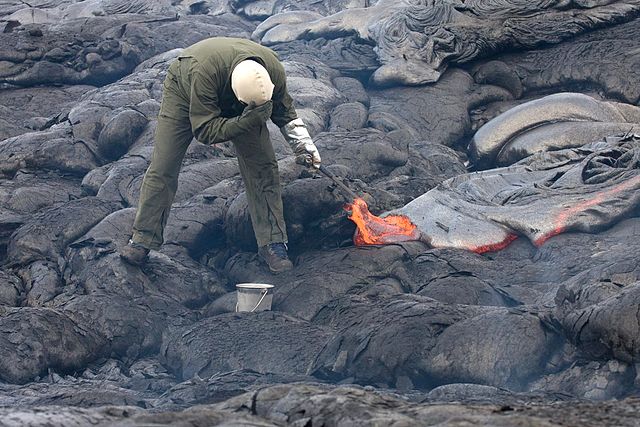Volcanology is the study of volcanoes, lava, magma and related geological, geophysical and geochemical phenomena (volcanism). The term volcanology is derived from the Latin word vulcan. Vulcan was the ancient Roman god of fire.
A volcanologist sampling lava using a rock hammer and a bucket of water
Eruption of Stromboli (Isole Eolie/Italia), ca. 100m (300ft) vertically. Exposure of several seconds. The dashed trajectories are the result of lava pieces with a bright hot side and a cool dark side rotating in mid-air.
Volcanologist examining tephra horizons in south-central Iceland.
Eruption of Vesuvius in 1822. The eruption of CE 79 would have appeared very similar.
A volcano is a rupture in the crust of a planetary-mass object, such as Earth, that allows hot lava, volcanic ash, and gases to escape from a magma chamber below the surface.
Sabancaya volcano erupting, Peru in 2017
Lakagigar fissure vent in Iceland, the source of the major world climate alteration of 1783–84, has a chain of volcanic cones along its length.
Skjaldbreiður, a shield volcano whose name means "broad shield"
Izalco volcano, the youngest volcano in El Salvador. Izalco erupted almost continuously from 1770 (when it formed) to 1958, earning it the nickname of "Lighthouse of the Pacific".








